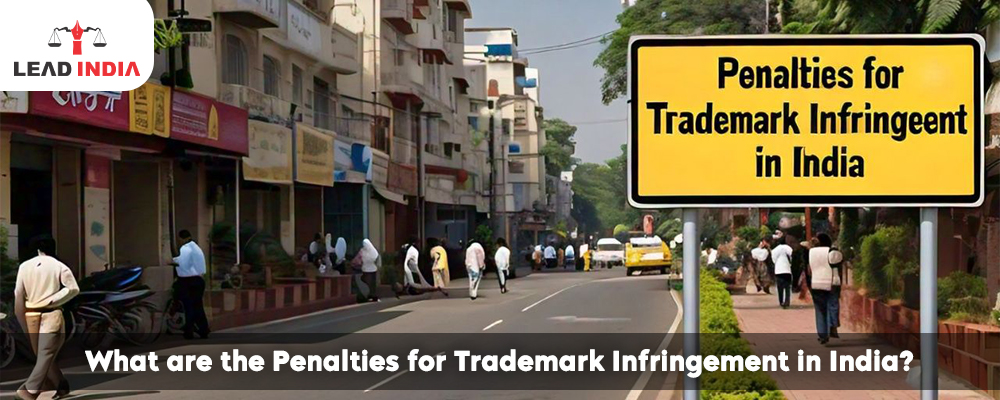In present times, the prevalent competition in the marketplace makes trademarks important as they help in the distinction between a company and its consumer’s association with certain products and services. Trademarks have more pictures, words, logos, or designs which help in the protection of the business’s brand image, goodwill, and standing.
But despite these structures in place, trademark violation is rampant. This is where a person or business can apply similar marks in order to confuse customers or take advantage of an already famous mark used by another person or business. In India, very severe laws exist about such violations in order to prevent any loss to the rightful owners of trademarks.
Trademark Infringement: About
A trademark infringement takes place when a duly register trademark is use without permission by a third party so as to create confusion or mislead the members of the public. In India, the key legislation that deals with trademark infringement is the Trade Marks Act, of 1999. This act provides not only a definition of the term infringement and measures against its violation but also the protection of registered as well as unregistered marks.
The types of infringement of trademarks are as follows:
- Direct infringement: This occurs when a person who is not authorize to use a register trade mark, uses a mark that is the same, or similar to the register mark so that it causes confusion among the relevant consumers.
- Indirect Infringement: This is an extension of the hawking of trademarks which in the Indian context has not been clearly define and which means that a person who indirectly infringes by using the mark only because it is advantageous to do so or by facilitating infringement, will not be culpable. However, the courts in India are quite aware of such a scenario and do hold a party such as the one described above, also liable, for indirect infringement.
Need A Legal Advice
The internet is not a lawyer and neither are you. Talk to a real lawyer about your legal issue

Penalties for Trademark Infringement in India
The Trade Marks Act, of 1999, also provides for criminal prosecution in cases of trademark infringement. It is common to seek criminal remedies when the infringement is serious, deliberate, or in cases of fake products. The criminal penalties that may be impose as a result of trademark infringement include:
- Imprisonment: A person accused of the crime of trademark infringement is liable to be imprison for a period of six months or more, and that length of imprisonment may go up to three years. This provision contributes to the deterrent nature of the punishment, pointing out that a violation of a trademark bears the weight of a criminal offense.
- Fines: Irrespective of the terms of imprisonment, those who infringe may be liable to pay a fine amounting to not less than 50000 rupees and not more than 200000 rupees. The fine is determine by the court depending on the degree and magnitude of the violation.
- Seizing of counterfeit goods: The law empowers agents to confiscate and even dispose of goods that are illegal to manufacture or sell. This ensures that fake goods are not available in the market which protects the users as well as the image of the company.
Imprisonment is most useful in the fight against organized crime where there are enterprises that deceptively use another person or a business’s trademark in order to make a profit.
Defenses Against Trademark Infringement
The law affords protection to legitimate trademark owners however, those accused of infringement may also respond with available defenses which include:
- Fair Use: Wherein a mark is use to describe something positive about the goods or services provided, their quality, grade, and even purpose, the defendant may cite fairness of use.
- Lack of Confusion: Where defendants show that the two trademarks in question present no potential for confusion because of their obvious distinctions, they may escape infringement liability.
- Non-use of the Mark: If a registered trademark has not been use in the course of trade by the owner for a period of around more than five years, the defendant may plead that the mark be cancel.
- Challenging the registration on the Grounds of Invalidity: The defendant has the right to respond to the complaint by claiming that the plaintiff’s registered mark does not qualify for statutory protection.
Under the Indian legal system, trademark infringement is an act that is regard as extremely serious within the confines of the Trade Marks Act of 1999 which contains several provisions to safeguard the rights of trademark proprietors. The penalties available are both civil and criminal, and in this case imprisonment and fines act as an effective deterrent. The Indian judiciary has also played a vital role in shaping the present scope of trademark protection through notable judgments, along with its other aspects that seek to protect registered marks from any dilution or contamination.
One can talk to a lawyer from Lead India for any kind of legal support. In India, free legal advice online can be obtain at Lead India. Along with receiving free legal advice online, one can also ask questions to the experts online free through Lead India.




 Talk to a Lawyer
Talk to a Lawyer